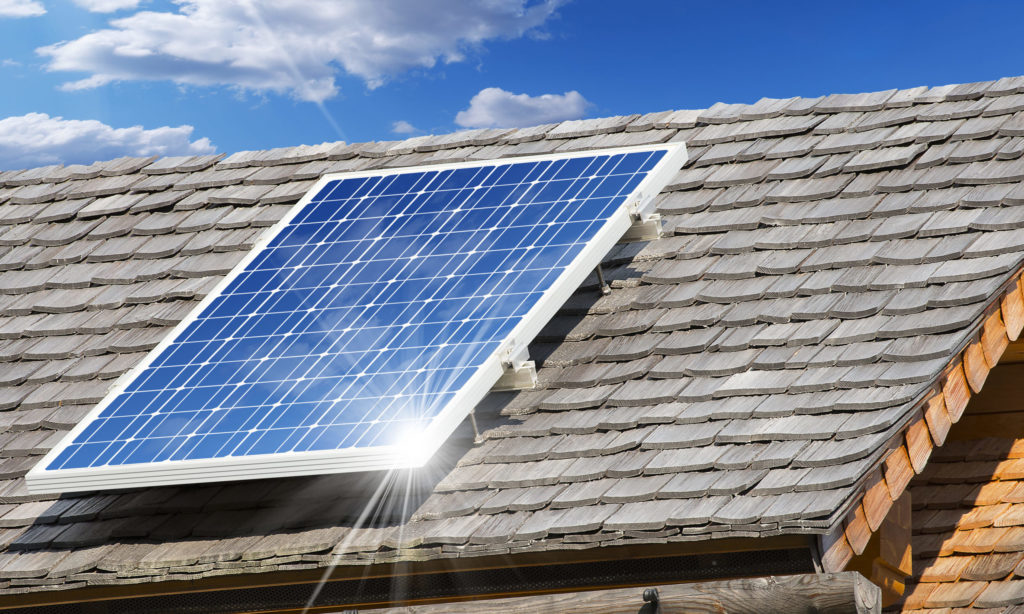If you’ve been considering installing solar panels in your home, there are a number of important questions that you’ll need to answer. Before getting started, you’ll want to be aware of the different types of home solar panels and whether or not you can install them yourself. You’ll also want to consider how many panels you’ll need to power your home.
What Are Home Solar Panels?
Home solar panels are made up of dozens of photovoltaic cells that absorb the sun’s light, convert it into usable electricity, and store it in a battery. Solar panels can save you money on electricity bills. These panels are typically installed on the roof of a house. These solar panels only work when the sun shines, which means they don’t generate electricity during the night. Homeowners who need electricity at night can purchase a battery solution, but it can be expensive. Most homes in Pennsylvania that use solar panels still rely on the grid for power from time to time. Nevertheless, solar panels can help reduce electric bills and even pay for themselves over time. If you’re looking for a solar installation, make sure you choose a licensed, insured, and experienced company. This way, you can feel comfortable with the company and get the best price. Some companies offer more personalized service, which can be important.
Do Solar Panels Save Energy?
Solar electricity can help you save money on your energy bills, but they only produce power when the sun is shining, so they are not a 100% grid-free energy source. This means that you will need to purchase backup electricity from the grid at times. While some homeowners use a battery solution to supplement their power needs, these solutions are expensive. Most homes with solar panels still use the grid on a regular basis, but in time, solar power will pay for itself. You can also opt for net metering, which allows you to receive credits for your electricity usage. If you’re considering installing home solar panels, you can begin by calculating how much you would save each month and how much solar panels cost. Log into your account with your electric utility company and look at the past few months worth of electricity bills. Try to go back at least six months so you can account for seasonal cost changes and other variations. If your average electricity bill is $125 a month, you’ll save about $1,500 per year. That’s a twenty-to-one return on investment.
Can You Install Home Solar Panels on Your Own?
Installing solar panels yourself may result in a lower initial cost, but you’ll risk preventing yourself from qualifying for certain financial incentives. Some government agencies, such as the U.S. Department of Energy, offer various incentives for homeowners who install solar panels. However, you must use a licensed installer to be eligible for these incentives. Typically, this means a certified installer holds a license from the North American Board of Certified Energy Practitioners. Solar panels are becoming more popular as more people realize how much energy they can produce. You don’t need to have a large property or have a lot of space in your backyard to make use of them. In fact, they can be installed almost anywhere.
However, you should remember that installing a solar energy system by yourself can be dangerous. You must have experience with high-voltage wiring and have proper training in electrical safety. Even a simple mistake can cause a power surge, blow an inverter, or even start a fire. Before you can start installing solar panels, you need to be certified by your state’s electrical code. In addition, you should make sure you match the proper wiring with your residence. You should also understand the local grid specifications for your area in Pennsylvania so you can make sure you’re avoiding a power outage.

How Many Solar Panels Are Required to Run a House?
To determine how many panels are necessary to run on your residential solar power system, you should first estimate your energy consumption. You can do this by taking your current energy bills and multiplying them by the number of hours of strong sunlight. Once you know this number, you can then divide it by twelve to determine the wattage of panels required. If you are unsure of your needs, you can also consult with a professional to determine what type of system would work best for you.
Solar panels have different efficiency rates depending on where you live. In the sunniest areas, panels perform best, converting the sun’s energy into electricity. In areas that receive little to no sunlight, you will need to install more panels. This can be a challenge if you live in an area with a long winter. In these cases, you should choose a system that can withstand the winter and still provide you with electricity throughout the year. Residential solar systems have become extremely popular over the past several decades. With the rise of environmentally-friendly behavior and the desire to reduce energy bills, the demand for panels has soared. To install a solar panel system in your home, you need to hire a solar panel installation company.
How Long Do Solar Panels Last?
The lifespan of solar panels or rooftop solar panels depends on a number of factors, including the type of equipment used, the installation site, and the maintenance of the system. In most cases, solar panels should last between 25 and 30 years. However, their performance will diminish over time. Monocrystalline and polycrystalline panels are most likely to last for decades, thin film panels have a shorter lifespan and come with a shorter warranty.
In addition to climate, extreme weather events, and other factors, solar panels will eventually start to degrade and cease to generate energy. However, the quality of solar panels plays an important role in their lifespan. Those made of low-quality materials are more likely to degrade quickly, limiting their lifespan. Other factors that affect the lifespan of solar panels include the quality of the installation. Regular inspections of home solar panels can help them last longer. Professionals can help you determine if your panels are in good condition and prevent damage from occurring.
Do You Need to Frequently Clean Solar Panels?
It is important to check the panels frequently to remove any buildup. Dirt and bird droppings can interfere with the proper transmission of sunlight. This means that it is important to clean the panels at least once a week. However, it may not be necessary to clean them frequently. In some cases, a weekly check will be sufficient. To clean solar panels effectively, you need to clean them with mild soap and water. You can also use a soft scrubber to scrub away the dirt. Then, rinse the panels off with warm water. You should not apply too much soap as it can cause damage to the panels. After cleaning, use a squeegee to remove any excess water.
Although most solar panels don’t need frequent cleaning, some areas require special attention. For example, in the southwestern region of the U.S., the lack of rainfall for many months means that dirt buildup can build up on the panels. Similarly, solar panels near pollution sources and areas with heavy snowfall require more frequent cleaning.
Are Solar Panels Installed on a House Really Worth It?
To find out if installing solar panels on your home is worthwhile, log on to your electric company account and add up the last several months’ electricity bills. It’s best to go back at least six months, since seasonal temperature variations may cause the cost of electricity to fluctuate. Then divide the sum by the number of solar panels installed, assuming that each panel produces 100 watts of energy. This will give you the payback period for installing solar panels. Solar energy is a great alternative energy source, but it isn’t appropriate for every home. The initial cost of solar panels can be high – more than $25,000 – and installation costs can add up quickly. Also, the location of the home is important. Homes that are closer to the equator will benefit more from solar energy. Additionally, homes in sunny states will benefit more from the installation of solar panels, than homes that are surrounded by dense forests or tall buildings.
If you want to save on electricity costs, installing solar panels for your home will help you reduce your electric bill dramatically, or even eliminate it completely. The amount of electricity you will save will depend on the price of electricity in your area and the length of your lease. The National Utility Rate Database is an excellent resource for checking electricity rates in your area. The upfront costs for residential solar panels can have a hefty total cost. However, a home solar system can save energy costs in the long run. You will also be receiving investment tax credits or solar rebates for the system installed. Before you buy solar panels, do your research on system designers, the type of solar panels, and the cons of solar panels. Assess if the cost of the system will be worth it for you.
